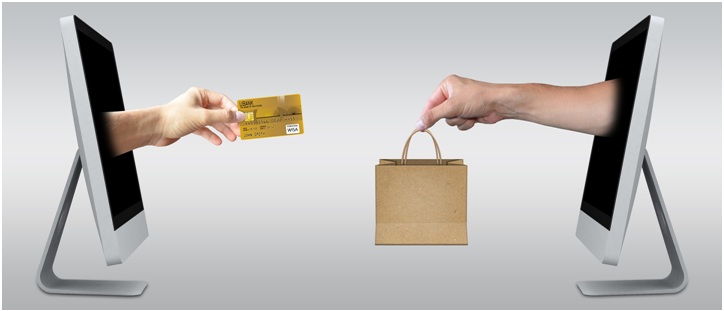10 Security Tips For Shopping Online
February 22, 2021People had started shopping online long before the pandemic hit and everything else went digital. Alibaba Express, Amazon, and Etsy are popular eCommerce marketplaces, while department stores like Walmart have also introduced digital shopping platforms. We can now not only shop for physical products and groceries but can also purchase digital designs, ebooks, resource solutions, and software programs while paying in a single click. But, are we safe from the sellers, suppliers, and vendors who can view our sensitive information from behind a screen? Certainly not! Read this article and discover how fraudsters can misuse your financial information and security tips for shopping online
Table of Contents
What can Hackers do with my Financial Information?
Cyber attackers and fraudsters can obtain your financial information and misuse it in countless ways.
- With your social security number, bank statements, credit history, and information, they can open bank accounts and register for credit services like loans and credit cards.
- They can use banking ID and related information to withdraw huge amounts of money.
- Attackers who get successful at withdrawing money can further use the money to advance serious crimes and fund terrorist activities locally and internationally.
- Criminals can even execute serious crimes, threaten others for bitcoin or other instruments and ask them to deposit the ransom money in your accounts. You can get into serious legal issues if security services find out that your bank accounts were used to deposit the money.
How to Shop Online Safely
There are, however, security standards you can start practicing today and ensure maximum safety while shopping online.
1. Manage passwords
Use strong, unique passwords on shopping websites, that are not used on social media accounts. This way, it would be difficult to hack shopping accounts. Change these passwords after at least 2 months and do not base your passwords on personal information like your spouse’s name or phone number.
2. Use a shopping specific email address
Do not register your personal email ID on shopping websites too, because such is usually logged in on different devices and someone may misuse your ID to access your account and make hefty purchases. Create a separate email ID and dedicate it to shopping. Maintain strong password standards and keep your accounts secure and private.
3. Activate VPN for Chrome or Antivirus
Whether the shopping platform is secure or not, it is the best practice to activate your browser extension or mobile VPN client before accessing shopping websites. You can choose premium VPN providers like iProVPN. It is reasonable, offers the highest-grade protection, and keeps the IP address private. Also, the provider has a dedicated VPN for Chrome and Firefox and the extensions are quick and user-friendly. Antivirus programs are also made to scan malware and can provide device-level security against online scams mandated to steal private data. Together, these two security tools can provide users with a safe shopping experience.
4. Avoid shopping on public Wi-Fi
Public Wi-Fi services are usually open platforms and can be penetrated to sniff data packets. There are thousands of active users on public Wi-Fi networks, out of which half of these online entities are not browsing, but monitoring other users’ online activities. To keep your personal information, credit card data, address, and sensitive data private and protected do not open your shopping accounts on public Wi-Fi. If accessing your account is urgent and needful, make sure to do so after activating the VPN client.
5. Use secure payment methods
Paypal, American Express, and Google Pay are secure payment methods. In case you are not satisfied with the received order, you can even hold the seller accountable or request a refund. But that is not always possible if you are paying through debit or credit cards.
6. Do not send your card details to vendors
Only shop through legit shopping websites, not on websites where bots or sales representatives ask you for your card details to process your payment. These channels might not be as secure as you think them to be and you may end up dishing out your highly sensitive financial information to looters and fraudsters who would use your card details to subscribe to services or make expensive purchases. Remember that most websites only require your card number, its expiry month and year, and the 3-digit CVV number to process a payment. Once a looter gets these three details, they can use your cards on local and international platforms.
- Do not shop on shared or work devices
Your friend’s laptop might not be as secure or private as you consider it to be. The same goes for your work devices because they are on constant tracking by the network managers. The smallest negligence could become a nightmare, and you may end up losing huge amounts of money. Therefore, do not shop on shared devices, company’s laptop or on devices where you have saved a lot of sensitive data because you may end up losing it all. If ever you need to access shopping sites through shared devices, do so with a VPN running in the background or browse in private windows with Incognito Mode on!
- Only access secure shopping website
Websites that show a lock at the beginning of the address bar or the ones that start with HTTPS are secure websites. Most reputable shopping platforms are usually secure; their developers care about user privacy and safety. However, hackers may create similar dummy websites to obtain shoppers’ information and payment details. Once these are out, the data can be misused to fund serious financial crimes or can be sold on the dark web. We have seen cyber threat incidents where attackers had registered for credit services and opened bank accounts only because they could obtain some personal information and social security numbers of innocent shoppers.
9. Avoid shopping via redirects or popups
No matter how fancy and promising a product looks, you never know who is behind the screen: especially if it is not a legit website and you’ve been invited through a suspicious link, or redirect. Phishing emails are common online scams and users are tempted to shop or get free products. Once they click the malicious link to enjoy a benefit, they end up losing data. Therefore, avoid opening ad links from unknown senders.
10. Always verify invoice numbers and billed amounts
When we shop online, we don’t get our bills in black and white, but through emails. Whenever you shop online and make a payment, immediately check the bills you receive on your registered email ID. as soon as you receive an email notification, cross-check the order number available on the bill and the amount you have been billed. Also, immediately check emails that you receive from eCommerce platforms to ensure your cards are not billed twice, or you are not charged for items you did not order. Also, always ensure the delivery address provided on the bill. It should be your registered address.
The Bottomline
Internet security is the fundamental digital right of every shopper, student, freelancer, or gamer no matter where the user is based. Follow these safe shopping practices and protect yourself, your devices, your hard-earned money, and your data from ending up in the hands of bounty hunters.




Monitore o celular de qualquer lugar e veja o que está acontecendo no telefone de destino. Você será capaz de monitorar e armazenar registros de chamadas, mensagens, atividades sociais, imagens, vídeos, whatsapp e muito mais. Monitoramento em tempo real de telefones, nenhum conhecimento técnico é necessário, nenhuma raiz é necessária.
You’re in reality a excellent webmaster. The website loading pace is amazing.
It sort of feels that you’re doing any unique trick. Furthermore, the contents
are masterpiece. you’ve performed a magnificent task in this topic!
Similar here: sklep internetowy and also here: Ecommerce
Hi there! Do you know if they make any plugins to help
with SEO? I’m trying to get my site to rank for some targeted keywords but I’m not seeing very
good success. If you know of any please share. Kudos! You can read similar article here:
Link Building